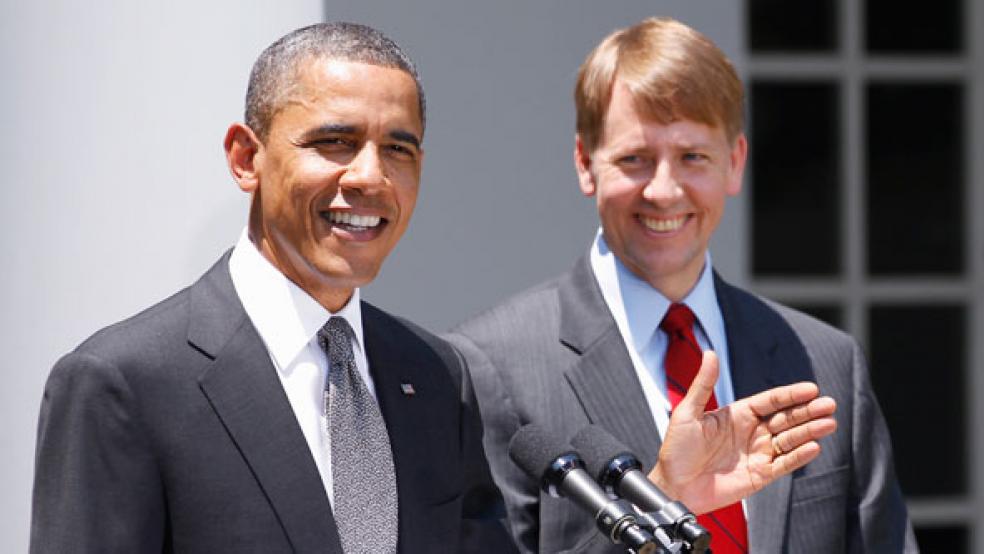President Barack Obama's nomination of former Ohio Attorney General Richard Cordray to head the new Consumer Financial Protection Bureau passes over the controversial Elizabeth Warren while preserving her agenda for the bureau, and leaves the next move to Republicans in Congress who have promised to block any nominee.
Cordray was one of Warren's first hires as the agency's enforcement chief. He is clearly aligned with her efforts to stamp out abuse and deception in consumer finance, after corruption and excessive risk-taking in the mortgage market led to the biggest financial crisis since the Great Depression. As Ohio's attorney general, he took on mortgage servicers and protected consumers from fraudulent foreclosures, recovering more than $2 billion for retirees, investors and business owners in the state, according to a White House statement.
"I will fight any efforts to repeal or undermine the important changes that we passed," Obama said in a White House nomination speech Monday afternoon. "I look forward to working with Richard Cordray as this bureau stands up on behalf of consumers all across the country."
Obama's announcement furthers the continuing political showdown over the bureau, which beginning Thursday will have authority over a score of consumer-protection laws. A group of 44 Republican senators has promised to block any nominee from being confirmed unless Congress increases oversight and changes the structure of the CFPB. While consumer advocates hail the regulator as vital protection for individuals from abuse in loans, insurance and other financial products, Wall Street and the GOP view the agency as a dangerously powerful arm of the Obama administration that is pushing an anti-industry political agenda.
Sen. Richard Shelby of Alabama, the top Republican on the Senate Banking Committee, criticized the White House for waiting until days before the agency formally opens its doors to name a director. "Until President Obama addresses our concerns by supporting a few reasonable structural changes, we will not confirm anyone to lead" the agency, Shelby said in a statement. "No accountability, no confirmation."
Senate leaders are likely to keep that body in session during August in order to block a recess appointment of Cordray, predicted Mark Calabria, director of financial regulation studies at the libertarian Cato Institute. "He's Elizabeth Warren with less baggage," Calabria said. "To me it's a gamble, but at least it puts it back" in the Republican's court.
Since Cordray is already working at the bureau, he'll be able to advance his agenda while awaiting confirmation, Calabria noted. Meanwhile, Warren can return to her home in Massachusetts, possibly to run against Republican Sen. Scott Brown in an attempt to retain the Democrats' thin hold on the Senate majority.
Consumer groups and Democrats, including Warren and Treasury Secretary Timothy Geithner, endorsed Cordray for the post. Financial sector representatives and Republicans expressed skepticism.
"The absence of a confirmed director and the enormous powers of this new agency have created a time of great uncertainty for the retail banking industry," said Richard Hunt, president of the Consumer Bankers Association. "We would prefer to see the bureau run by a commission like the FDIC, the FTC, the SEC, and even the Consumer Product Safety Commission, which was the model for the creation of the CFPB."
Before becoming attorney general of Ohio, Cordray served as state treasurer and treasurer of Franklin County. Before that, he was a state representative, adjunct professor at the Ohio State University College of Law and an attorney in private practice who argued seven cases before the Supreme Court. He is a graduate of Michigan State University, Oxford University and the University of Chicago Law School and a former clerk for Supreme Court Justices Byron White and Anthony Kennedy. He's also a five-time champion on the television show Jeopardy.





